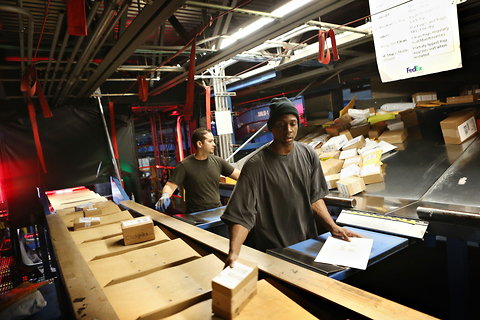 Getty ImagesSorting FedEx packages in Chicago.
Getty ImagesSorting FedEx packages in Chicago.
I’m not sure if this is a good thing, since it encourages people like me to wait as long as possible to send holiday gift items. But if you still want to ship gifts free, in time for Christmas, you have a few options. But this is it. Really.
A Web site called LastSleighDays.com has organized last-minute shipping and deals information, including promotional codes, for quick reference. Nearly all require minimum purchases to get free shipping. (The site is bought to you, naturally, by the pro-procrastination people at FreeShippingDay.com)
Some online retailers give you until midnight tonight (Athleta, Crate Barrel). Others (Eddie Bauer) have deadlines tomorrow.
I may take advantage of one of the offers, myself.
Are you willing to take the bet that your item will arrive on time if you choose free shipping today or tomorrow?
Article source: http://bucks.blogs.nytimes.com/2012/12/19/really-really-final-free-shipping-deadlines/?partner=rss&emc=rss